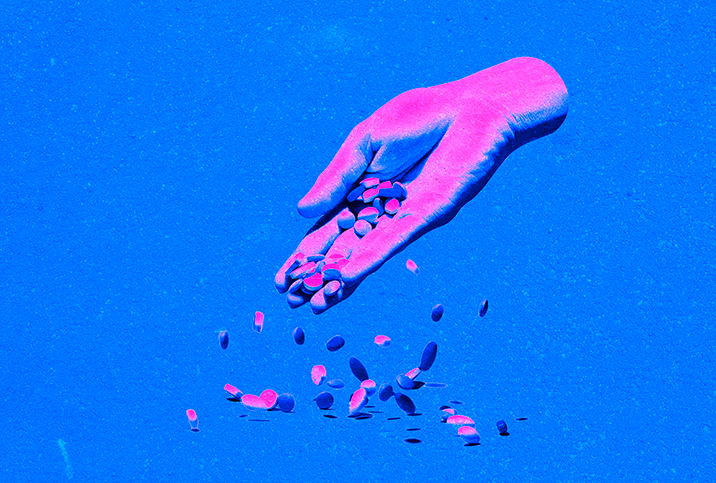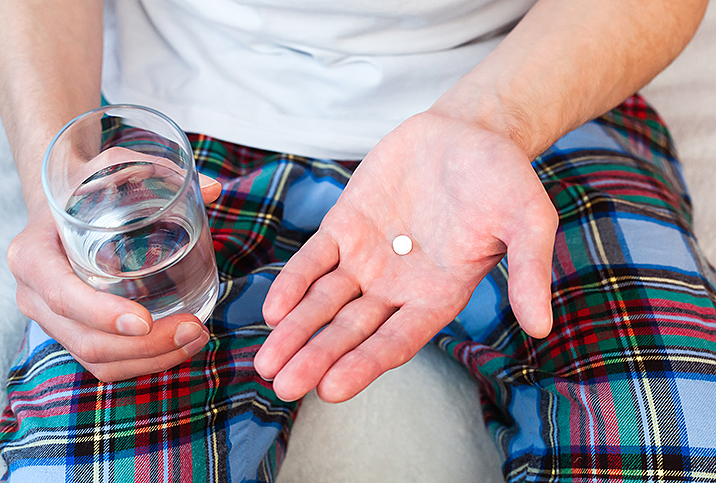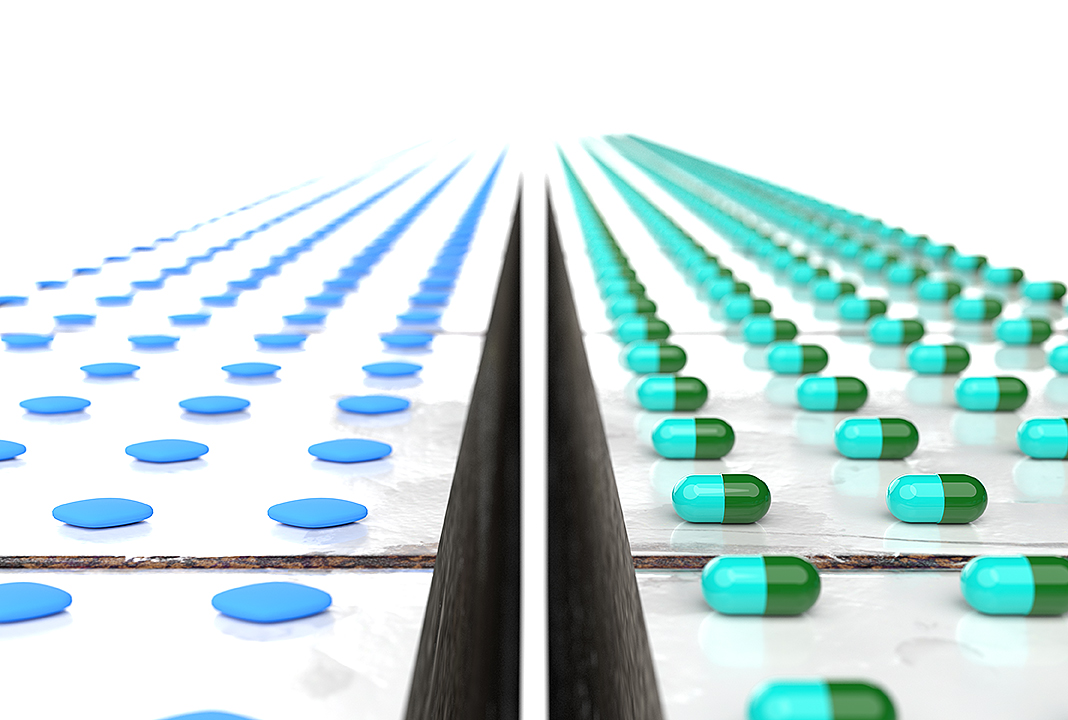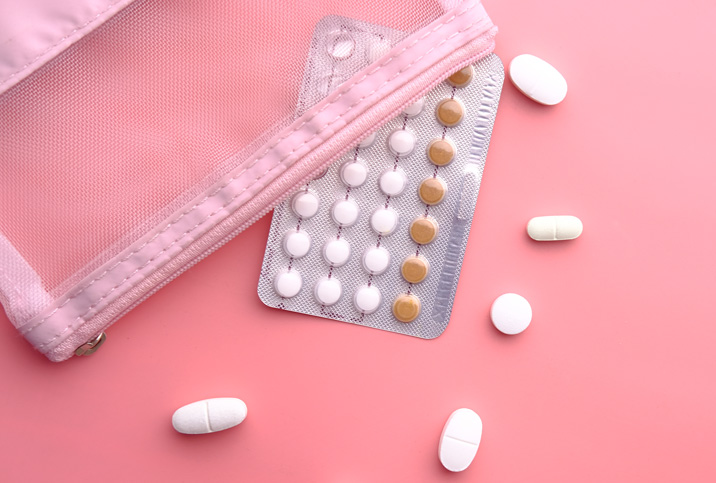Libido Problems Can Persist Even If You Halt SSRI Use

Selective serotonin reuptake inhibitors (SSRIs), or antidepressants, are typically the first-line treatment for individuals with depression and anxiety disorders, with about 1 in 10 Americans older than 12 taking such medication, according to the Centers for Disease Control and Prevention (CDC).
SSRIs increase the amount of serotonin in the nervous system, allowing for a positive influence on mood, emotion and sleep. Unfortunately, one of the most common side effects associated with antidepressant use is sexual dysfunction.
For individuals experiencing sexual dysfunction as a result of their medicine, gradually tapering off medication may seem like the solution. However, the cruel and little-known truth is sexual dysfunction can persist beyond discontinuation.
Conditions such as post-SSRI sexual dysfunction (PSSD) and persistent genital arousal disorder (PGAD) involve side effects on the sexual response cycle that become more prevalent after the discontinuation of SSRIs, potentially for years afterward.
Serotonin and libido
The intensity of libido shifts over time and varies among individuals. Low libido may be a result of physical issues, including diabetes, heart disease, neurological disorders, hormonal imbalances, chronic illness and drug use. Additionally, psychological causes such as stress, anxiety, relationship issues, trauma and guilt can impact sex drive.
For individuals taking SSRIs, increased serotonin and reactivity causes low libido. Up to 40 percent of individuals taking antidepressants develop sexual dysfunction, according to data cited in a 2000 review published in the Primary Care Companion for CNS Disorders journal.
Selective serotonin reuptake inhibitors alleviate symptoms of depression by increasing the amount of serotonin available in the central nervous system. However, the increase of serotonin can affect other areas of the body, such as the reproductive system. Neurotransmitters and hormones such as testosterone, dopamine and noradrenaline—which control sexual arousal and orgasm—are impacted, along with specific receptors tied to sexual function, such as adrenergic receptors which relate to ejaculation. Additionally, SSRIs inhibit the production of natural nitric oxide, vital to the sexual response cycle.
Post-SSRI sexual dysfunction
Post-SSRI sexual dysfunction (PSSD) disrupts the sexual response cycle, resulting in low libido, and it can occur after a few missed doses or even years after discontinuation. Reduced sensitivity and sensory changes are linked to SSRI reactivity, with common symptoms including genital anesthesia, weak orgasm, decreased sex drive, erectile dysfunction (ED) and premature ejaculation.
Carolina Osorio, a psychiatrist at Loma Linda University Behavioral Health Institute in California, noted that post-SSRI sexual dysfunction is typically a continuation of sexual dysfunction that begins with antidepressant use. However, the neurological understanding of PSSD is unclear.
"Different theories have been proposed to explain the mechanism of PSSD. Epigenetic gene expression and hormonal changes are two of the theories," Osorio said. "However, more research is needed."
Individuals taking a wide range of SSRIs, including paroxetine, sertraline, venlafaxine, citalopram, fluoxetine, fluvoxamine and escitalopram, have reported having multiple symptoms of PSSD. Symptoms of sexual dysfunction include low libido (reduction of sexual desire), anorgasmia (increased difficulty with orgasm), impotence, premature or delayed ejaculation, vaginal dryness and nipple insensitivity.
Men reported having a slightly higher frequency of sexual dysfunction (62 percent) compared to women (60 percent). However, Osorio indicated that many side effects overlap.
"For both sexes, symptoms include genital numbness, failure to become aroused or orgasm, pleasureless or weak orgasm, and decreased sex drive," Osorio explained.
Persistent genital arousal disorder (PGAD)
The discontinuation of SSRIs can cause a reduction in sexual function. It can also create sudden, frequent and unwanted genital arousal.
Persistent genital arousal disorder (PGAD) involves tingling, throbbing and pulsating sensations in the absence of sexual arousal. The persistent genital arousal and sensitivity result in orgasms without sexual activity or desire. The experience is described as uncomfortable, distracting and disturbing.
Neuropsychological conditions, as well as central neurological, peripheral and vascular changes, genital pressure, medication-induced changes, psychological factors, physical inactivities, and starting or discontinuing antidepressants or mood stabilizers are all associated with the disorder.
Psychiatric medications such as SSRIs, trazodone, amitriptyline, pramipexole and lamotrigine may induce or worsen PGAD during treatment or withdrawal. An increase in serotonin can affect sexual arousal, resulting in increased sensitivity. Additionally, dopamine mediates genital blood flow, affecting sexual arousal and desire.
Similar to PSSD, feelings of anxiety and stress may also worsen PGAD.
Treatment options
For both PSSD and PGAD, treatment options are limited and may be ineffective as a result of SSRI discontinuation.
Treatment for individuals with PGAD can include pelvic floor therapy and mindfulness-based cognitive therapy. For individuals with PSSD, low-power laser radiation and phototherapy may alleviate sexual dysfunction. In some cases, managing sexual dysfunction can come down to managing stress and anxiety, and introducing other antidepressants.
Anubhuti Upadhyay, D.P.M., a neuropsychiatrist and sexologist in Indore, India, suggested a few courses of action for SSRI-related dysfunction and dysfunction related to discontinuation.
"Treatment options include waiting for spontaneous remission, reducing the dose before sexual activity, or switching to lower-risk antidepressants like bupropion, mirtazapine, vilazodone or vortioxetine may help," Upadhyay said. "Sexual dysfunction persisting after SSRI discontinuation needs to be evaluated, and other causes like drug/alcohol use [or] medical conditions [need] to be identified and treated."
Additionally, a 2016 study published in the Mental Health Clinician indicated specific low-risk antidepressants such as bupropion reversed sexual dysfunction in 66 percent of subjects, and 38 percent of individuals reported improvements in sexual symptoms. Other research indicated spontaneous recovery may occur over time. In some cases, individuals experience brief remission where sexual dysfunction does not occur for a few days or weeks.
Before starting any medication, Upadhyay recommended psychiatrists provide individuals with information about the possibility of sexual dysfunction, side effects and treatment options. In recent research, the European Medicines Agency has recognized the continuation of sexual dysfunction after SSRI use and will be updating information on antidepressants.
"Psychiatrists should educate their patients regarding the potential sexual side effects of SSRIs—like problems with orgasm, ejaculation and decreased libido—to improve medication adherence and improve the overall quality of life," Upadhyay said. "Baseline sexual functioning before starting antidepressants should be determined to identify SSRI-induced sexual dysfunction at its earliest. Direct questioning or standardized rating scales to determine sexual functioning is useful."


















